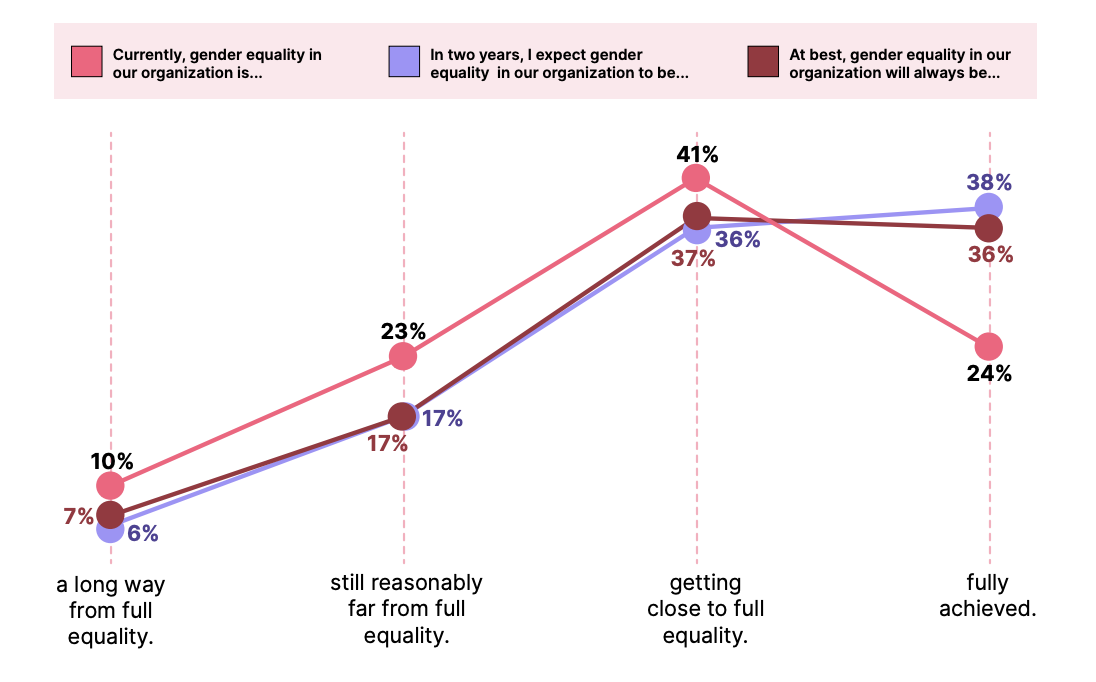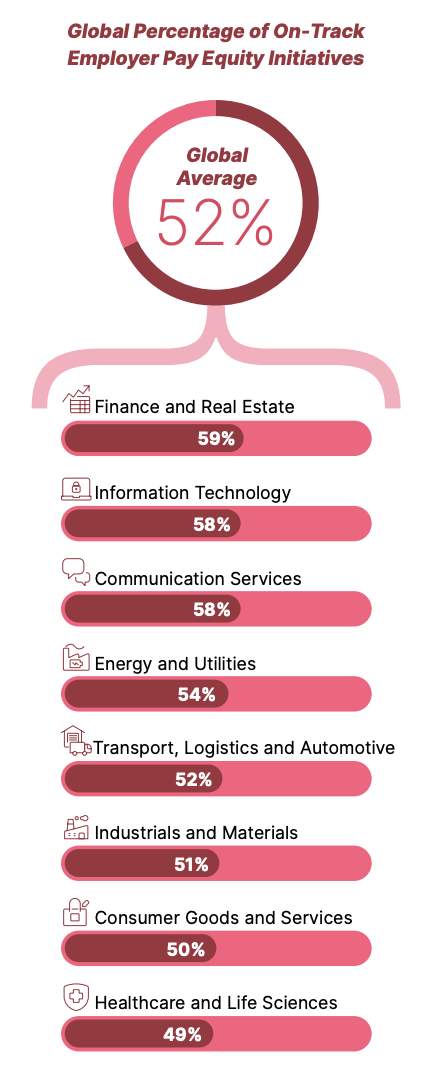
Which sectors are most likely to declare their pay equity initiatives are on schedule?

Less than a quarter of employers across the world have reported achieving full equality in the workplace, according to a new report, which underscored the importance of hiring women amid talent shortages.
Findings from ManpowerGroup found that only 24% of employers said they believe gender equality has been fully achieved in their organisation.
"Gender equality in our definition includes aspects such as equal pay, equal promotion opportunities, and equal leadership development opportunities," the report read.
It found that 41% of employers are coming close to full equality, while 10% said they are a long way from it.

Source: ManpowerGroup's World of Work Outlook for Women
By region, 71% of respondents from South and Central America said they are getting close to full equality or that is already achieved.
This is much higher than the 64% in North America, 63% in Europe, the Middle East, and Africa, and 63% in Asia-Pacific, according to the report.
Pay equity is one of the factors considered when it comes to pay equality, where only 52% of employees globally saying they are on-track with their pay equity initiatives.
By industry, employers in the Finance and Real Estate (59%) are most likely to declare that their pay equity initiatives are on schedule.

Source: ManpowerGroup's World of Work Outlook for Women
In terms of promotion opportunities, the report also found that just 87 women were promoted for every 100 men promoted from entry level to manager in 2023.
However, roughly 80% of women want to be promoted to the next level, with rates going higher for women of colour (88%) and those under the age of 30 (90%).
Becky Frankiewicz, ManpowerGroup chief commercial officer, said it is important that everyone is tapped in employment amid labour shortages.
"Bringing women into the workforce with an equal playing field is an economic imperative, not a nice-to-have," Frankiewicz said in a statement.
And flexibility might just be the key - as 37% of employers believe flexible working policies are most effective in securing diverse talent.
In fact, 60% of women said they considered leaving their current roles for more flexibility.
"Knowing what women expect and need is the foundation for building equity. Actively upskilling, empowering allyship, leveraging technology to enable flexibility - this is how we unlock potential and growth, both for women and organisations," Frankiewicz said.